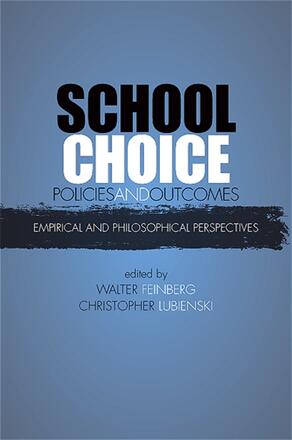
School Choice Policies and Outcomes
Empirical and Philosophical Perspectives
Alternative formats available from:
Provides a clear assessment of all sides of the school choice debate.
Description
Perhaps no school reform has generated as much interest and controversy in recent years as the proposal to have parents select their children's schools. Opponents of school choice fear that rolling back the government's role will lead to profit-driven financial scandals, sectarianism, and increased class and racial isolation. School choice advocates believe that state provision, oversight, and regulation stifle entrepreneurial creativity. The contributors to this volume not only provide a clear assessment of the logic and evidence supporting the different sides of the debate but also unmask the assumptions about the relationship between markets, government, and educational achievement. Their message is that neither markets nor government alone will guarantee freedom, equality, achievement, or community. If choice is to improve education and advance equality, then educational policy cannot be placed on automatic and left to the "free" market. Rather, choice policy must be deliberately directed toward meeting these goals, and this book shows how that could be accomplished.
At the University of Illinois at Urbana-Champaign, Walter Feinberg is Professor of Philosophy of Education, and Christopher Lubienski is Associate Professor of Educational Organization and Leadership. Feinberg is the author (with A. Belden Fields) of Education and Democratic Theory: Finding a Place for Community Participation in Public School Reform, also published by SUNY Press, and For Goodness Sake: Religious Schools and Education for Democratic Citizenry.
Reviews
"[School Choice Policies and Outcomes] includes both empirical and philosophical considerations of school choice, which is examined within the context of values, such as equality, liberty, and pluralism." — CHOICE
"The book makes a contribution to the contemporary discourse on school choice and will be useful as a textbook for courses in educational policy and politics." — Mary Anne Linden, University of Portland